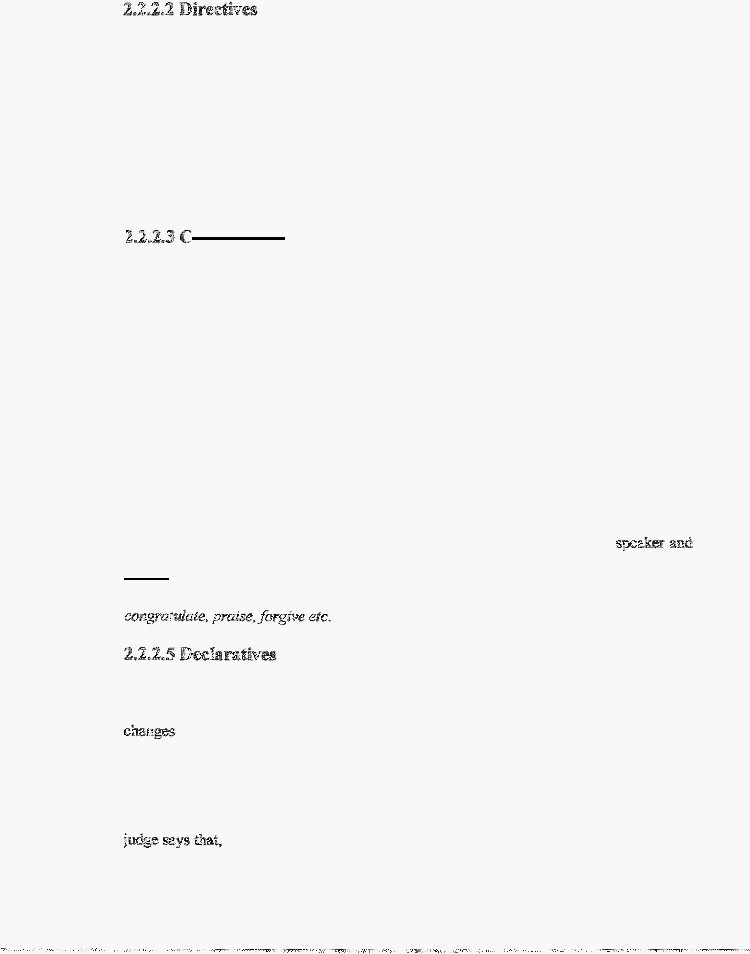
the term suggests, directive uJ:+.ernnce is where the speaker is trying to db-ec';
the
!!dlli-essee
toward some goals of speaker's
mostly or to get
the
addressee to
perform some acts or refrain from performing them (ibid pg. 164), Common verbs that
mark
this speech
act
are:
request,
order,
comrnand, advice,
beg,
wam
fto),
recommend,
ask (to), beseech
ap.J suggest.
Like directives, commissives create lh'l
obligation; hov.'ever,
thls obligation is
created IY'J
spelhlcer, not
the
hearer,
speaker to a cou.rse of action (ibid
other word, this type of speech act
commits
!.64), Commissives
verbs
are
i!Iustmred
agree,
offir,
refuse, swear,
promise, vow, threaten. contract
follovved
irlfinitive (to)-
2,2,2,4
Ellplt'i?:SSKv!e!!
This
speech act
expresses the deep
feeling
of
the
speaker (ibid pg,
Expressions
"I-I'ow are
today?
Or "It's nice
te meet
you again."
are
not
meant
to
seek fer an answer, rnt1 "r they are
meant to establish
rapport betv.een
Kinds
are inc!uded in
type of
speech
act
are: apology,
thank,
type
of
speech
act
changes
the
state
of affairs
t.'Je >vorld
or
brings
about
the world, By
the time declaratives
utterance
is
spcke:1,
it
has
been
carried out
thus
the
world
is
no
longer
the
"lle way as
it
before
(ibid
pg,166),
Not[ce
example
the
court
that
I
mentioned above
(see
H}
the
time
the
change on
corrvict's
is imposed on. The verbs
sig:nal this